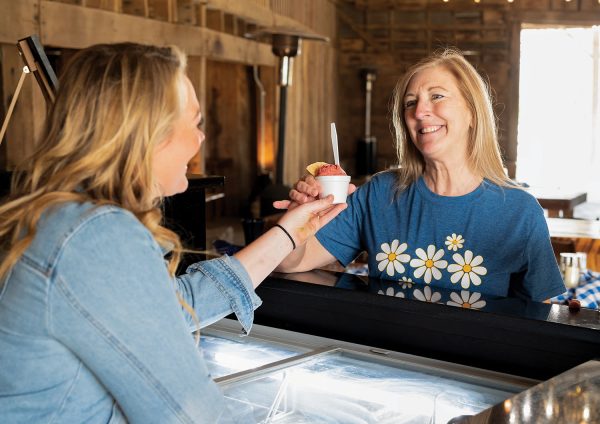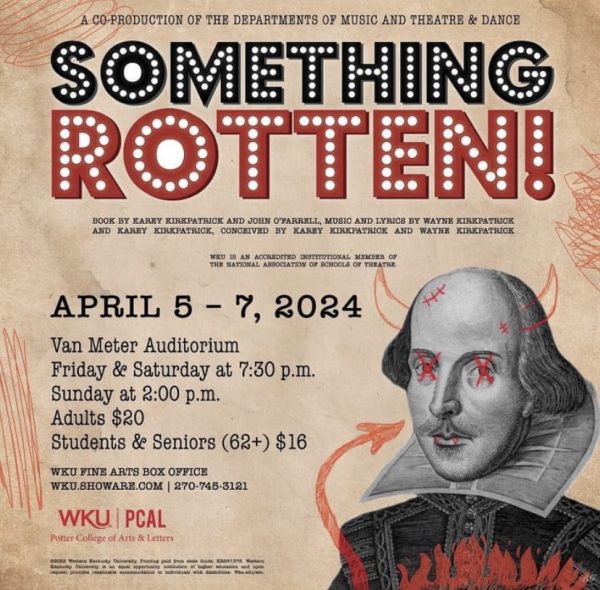Lending a Hand
February 11, 2003
A young girl stood at about five-feet tall, dressed neatly in jeans and a bell-sleeved top. Strapping on her size six bowling shoes, she smiled up at her “big sister.”
Samantha Jones, a Bowling Green sophomore, and 11-year-old Tiosha are members of the Big Brothers-Big Sisters organization.
While many people have heard of the organization, relatively few know what it is really about. The most likely thing to pop into people’s heads when they hear the name is the annual fund raiser “Bowl for Kids’ Sake.”
“We fill up the alley every time we do this,” said Amy Rutledge, executive director for Big Brothers-Big Sisters of South Central Kentucky.
The event that has been going on for over 20 years raised around $7,000 last Tuesday night, which is more than the event raised last year, Rutledge said.
But there’s more to Big Brothers-Big Sisters than the fund raiser. For some Western students, the organization is a blessing.
Big Brothers-Big Sisters of South Central Kentucky follows the nationwide plan to pair adults with “less fortunate” children between the ages of six and 12.
The adults act as mentors to the children, taking them places and doing things with them that they wouldn’t normally get to do.
According to the organization, Big Brothers-Big Sisters is a way of helping “at-risk” children deal with issues like low self-esteem and poor school performance.
“I decided I had the time and wanted to help my community, so I joined Big Brothers-Big Sisters,” Jones said.
She was matched with Tiosha in October of 2002.
Jones, an only child, said that Tiosha has taught her many things. ?
“She’s shown me what it’s like to have a little sister,” Jones said. “She has totally changed me.”
Tiosha shares the sentiment.
“She’s really fun to be around,” Tiosha said.
According to Jones, the two have done everything from painting to watching movies to feeding ducks at the local parks.
“She loves riding around in my convertible car,” Jones said. “Tiosha’s the kind of person that you’d want to take around to all your friends. She’s very well-mannered.”
Tiosha will soon be moving to Mississippi, leaving Jones without a “little sister” to look after. Jones said she plans on holding off for a while before getting another one.
“She’s touched my life so much that I don’t just want to jump right in and get another (little sister),” she said.
Although Tiosha is moving, the two plan to stay in touch, with Jones visiting whenever she can.
According to Rutledge, both the adult and child get things out of the program.
“It’s a two-way street,” Rutledge said.
While the child is given a role model, the adult can get a sense of fulfillment out of being a big brother or big sister, she said.
That’s just the case with Western graduate Becky Pike and her little sister, 12-year-old Kristin.
“It really is relaxing,” Pike said. “It’s kind of a break.”
She and Kristin were matched in June of 2002. The two have done a number of things in their seven months together.
“We’ve gone shopping, to Krystal, Lost River Caves, golfing,” Kristin said with a grin as she strapped on her size six bowling shoes last Tuesday night.
“I think that I get as much out of it as she does,” Pike said. “It’s really rewarding.”
Anybody can sign up to be a big brother or big sister in Bowling Green.
Program participants spend two hours a week with the child they’re matched with.
“It’s easy,” Pike said. “Just one night a week for a couple of hours.”
According to Rutledge, about 75 percent of those that sign up are big sisters, so brothers are in great need.
Having a little brother or sister through the program also counts towards community service hours that some classes and organizations require.
Morgantown junior Sam Hawes joined Big Brothers-Big Sisters to get community service hours for his fraternity Sigma Alpha Epsilon.
While there were other ways to tally the required hours, Hawes said that he felt this was the most fulfilling.
“I just thought it would be the best way to make a positive impact on the community,” he said.
Hawes met his little brother, 12-year-old Deshaun, in November of 2002.
“I went into it not knowing if I’d like it,” he said. “It’s a little awkward at first.”
But Hawes said that he’s now closer to Deshaun and wants to continue the program as long as he attends Western.
“Many people who do it for [community service hours] say they walk away feeling like they got more out of it than the child did,” Rutledge said.
Hawes agreed.
“It’s just a good experience,” he said.
Reach Cassie Riley at [email protected].


















![Megan Inman of Tennessee cries after embracing Drag performer and transgender advocate Jasmine St. James at the 9th Annual WKU Housing and Residence Life Drag Show at Knicely Conference Center on April 4, 2024. “[The community] was so warm and welcoming when I came out, if it wasn’t for the queens I wouldn’t be here,” Inman said.](https://wkuherald.com/wp-content/uploads/2024/04/smith_von_drag_3-600x419.jpg)






